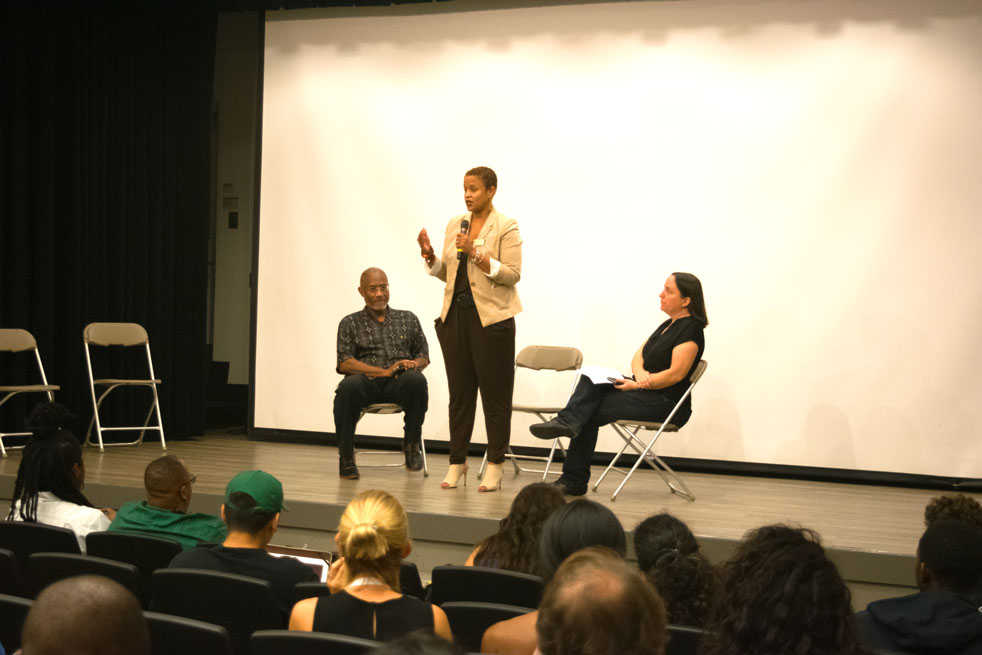Members of the Tech community packed into the Student Center Theater last Friday to voice concerns about police violence, mental health and the importance of community. Panels comprised of faculty members and outside community activists led the discussions in hopes of starting a campus-wide dialogue about changes that need to be made. The idea for the forum, a type of event typically called a teach-in, stemmed from a conversation between Tech’s own Dr. Anne Pollock and Dr. Sherie Randolph about student response to the fatal shooting of a student by a GTPD officer last week.
“When we heard about the events, and then saw the way the student protests were handled, we thought a good thing to do would be to create a forum for some help contextualizing these issues and to hear where students are coming from,” said Pollock, who is in her tenth year at Tech. “It felt important for us to do something right away because it was clear that the students were not feeling seen.”
The teach-in took place just six days after the incident and four days after a controversial protest culminated in chaos on the streets of Tech’s campus. Though the main provocateurs of Monday’s violence were unaffiliated with the Institute, the circumstances of Scout Schultz’s death left a large portion of campus angry, emotional and confused. Pollock and Randolph feared that lack of action by the faculty could potentially fuel discontent on the part of the students.
“I think it was hard for [the faculty] to hear how angry some of the students were,” Pollock said. “It’s important for students to feel like faculty care about them. This is a student-serving institution. It exists in order to foster education. We need to keep our eyes on that prize, and when we are falling short we need to address that.”
The event was faculty-led, but the organizers left plenty of time between panels for the students in attendance to ask questions and voice their concerns. Several times throughout the afternoon, students stood to deliver impassioned accounts of their experiences at Tech and the ways that administration have failed to meet their needs.
“We should all care about a campus of mutual respect, of human dignity and thinking about what keeps us safe as a campus and what gives us freedom,” Pollock said. “I’m not saying to drop everything to focus on this, but part of being a member of a community is to care about how that community is run. The purpose of campus police is to keep students safe, so how can we make sure that happens?”
Divided opinions on GTPD may be keeping students from healing, but the entire incident reopened one of Tech’s most glaring and persistent wounds: mental health problems on campus.
“Another thing to think about is how we care for students in distress,” Pollock said. “Maybe not in as dire a situation as Scout Schultz was in on that fateful night, but more broadly. How can we not drive students to that level of stress but also be there for them when they are? A rigorous education is not incompatible with an education that addresses human beings. It can be technically rigorous and still foster thriving on the part of the students. We aren’t just linear algebra machines.”
With mental health now at the forefront of campus conversation, entities of all kinds are coming together to put time and resources into improving the situation of everyone on campus. Thanks to events like last Friday’s teach-in, the Tech community is one step closer to finally recognizing and addressing the underlying issues facing both minority students and the student body as a whole.
